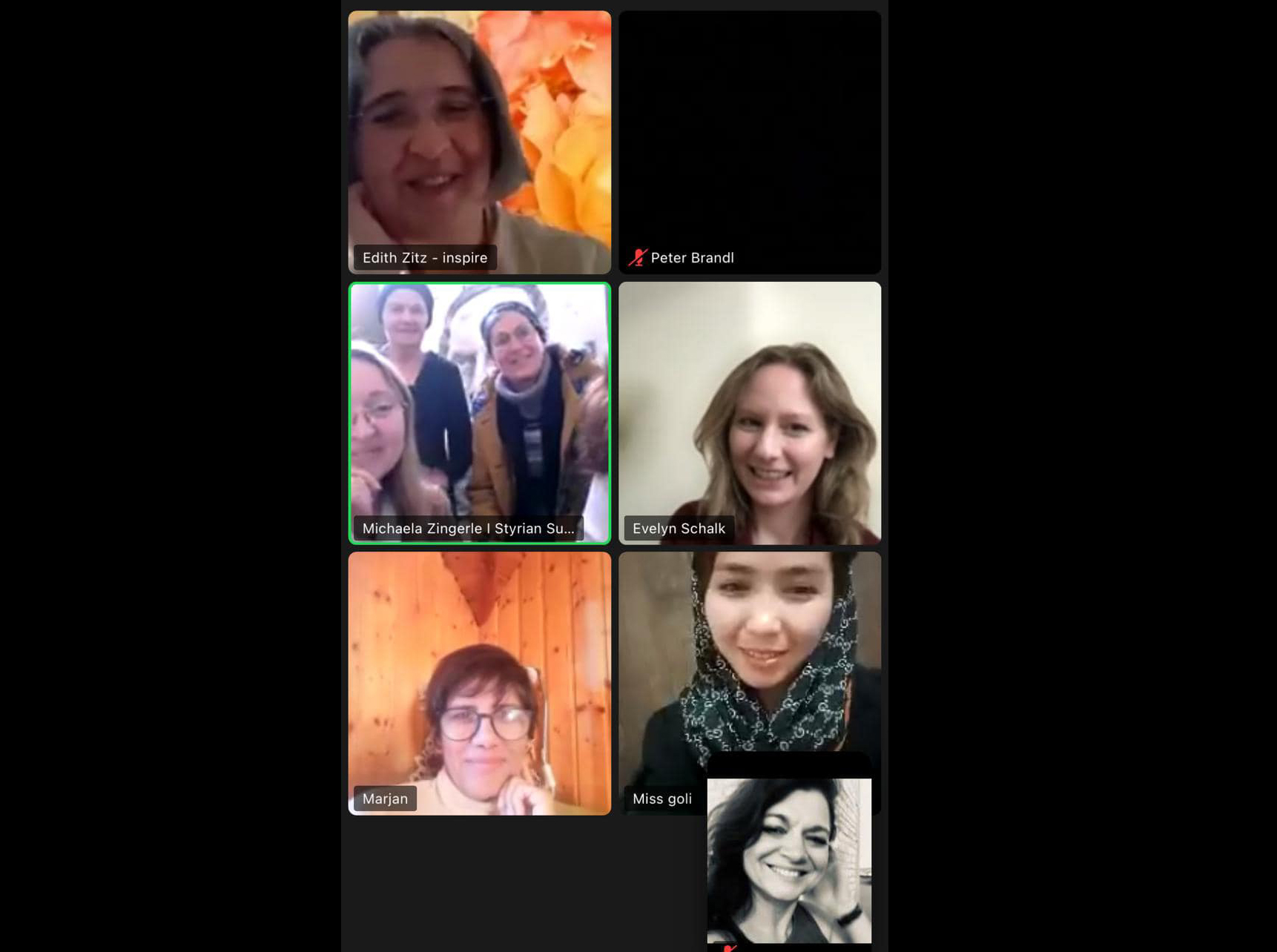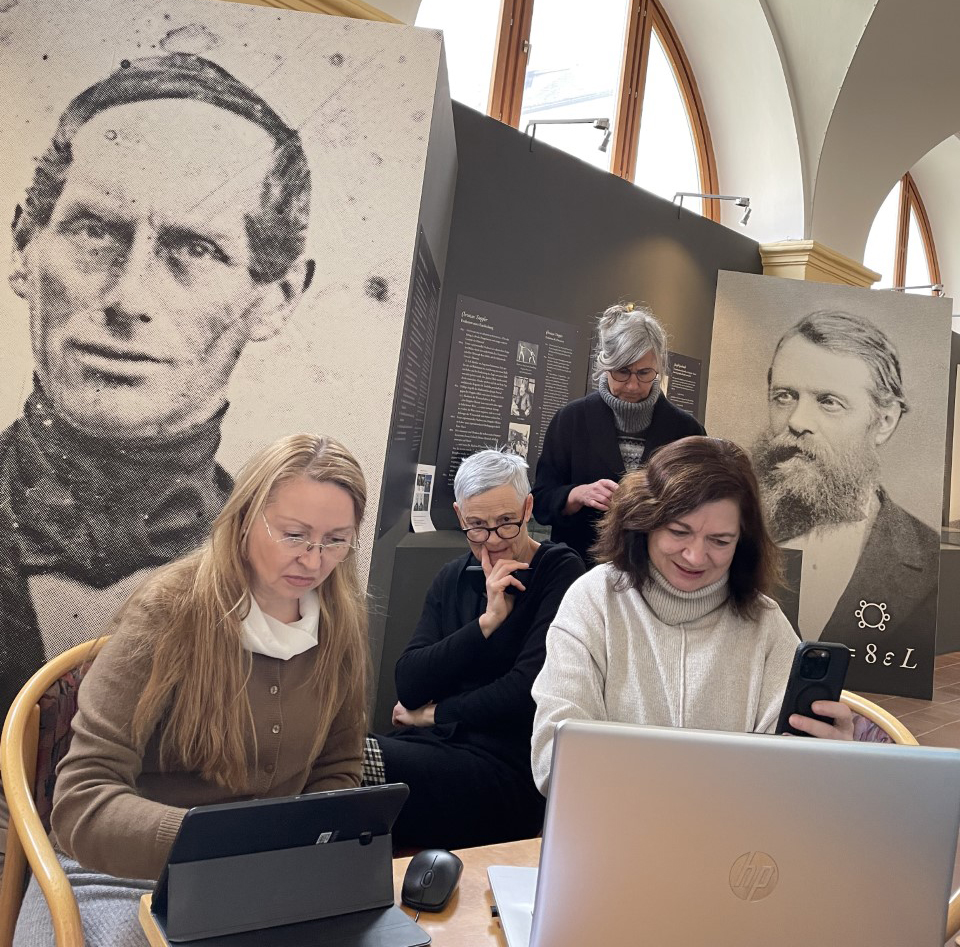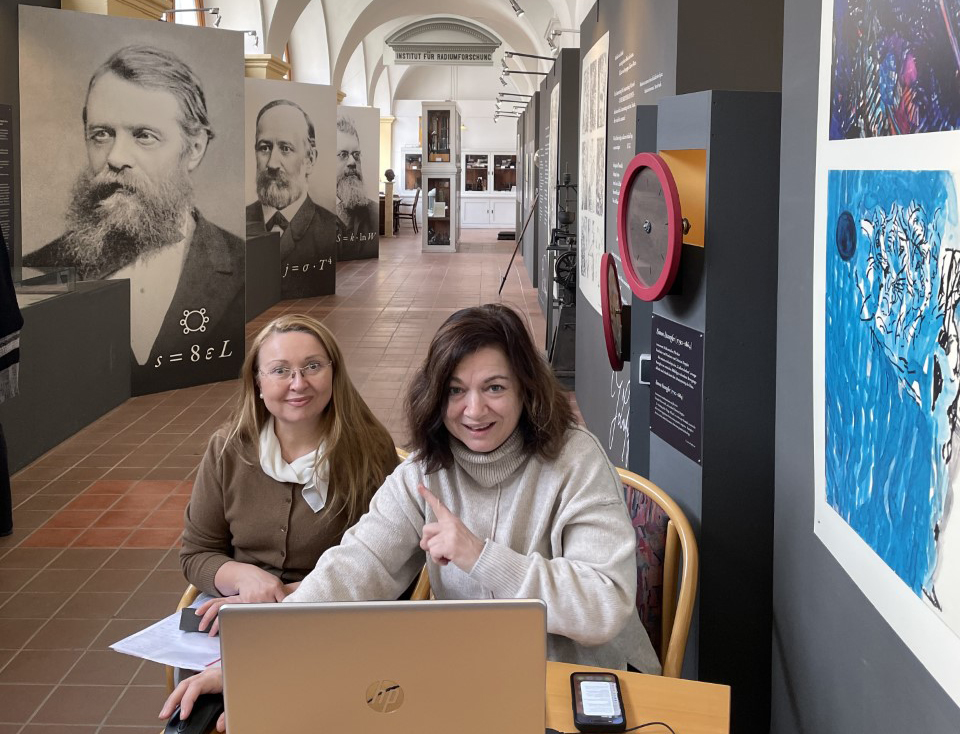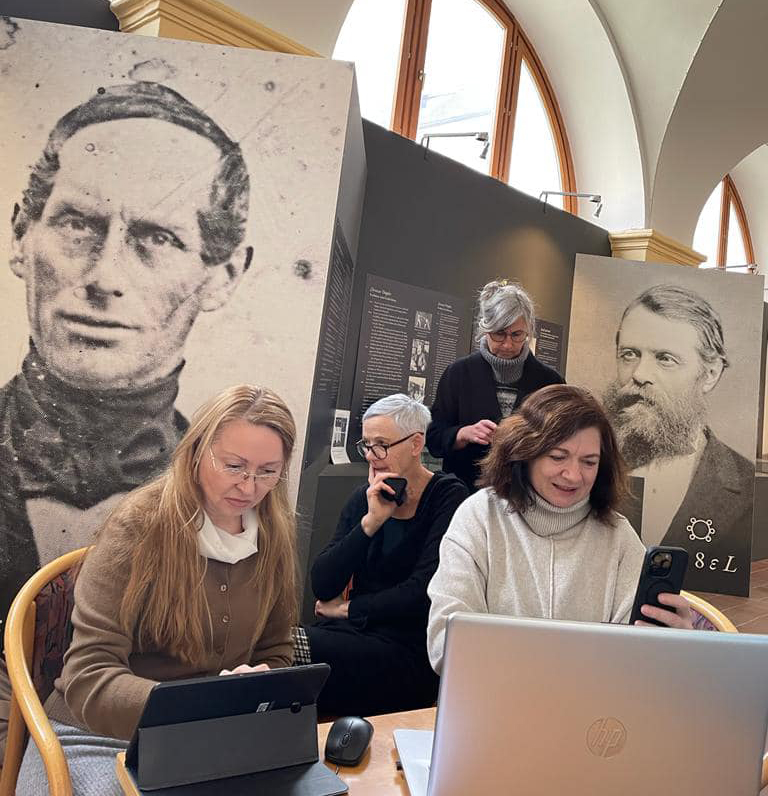The online discussion on 28 March at the echophysics Physikmuseum Pöllau with female scientists and students from Afghanistan, Iran, Ukraine and Styria focused on the precarious personal and professional situation of women both in the current crisis regions and in the world of science in general.
Amena Karimyan, a civil engineer and astronomer from Afghanistan, reported on the repression and threats faced by women in her home country and the obstacles to her escape that the Austrian authorities created, meaning that she was not granted the right to stay here and applied for asylum in Germany, where she currently lives in Stuttgart. The recognised expert, a sought-after speaker in numerous European scientific circles, fought for women's rights under the Taliban regime before she fled and continues to support women from her asylum to the best of her ability.
Golbakht Sharifi is a young medical student from Kabul, currently in Iran, who had to drop out shortly before graduating because the regime closed all educational institutions for women and girls. Her desire to help improve medical care in the country, especially for women, was thus abruptly stopped. Despite this, she continues to campaign and is therefore always under threat of attack. Both women emphasised the importance and encouragement they experience in the West through the perception of this situation in Afghanistan.
Larysa Zhdamarova is a microbiologist from Ukraine and has been living in Graz since spring 2022. She had to leave her scientific work in a hurry because of the war and, separated from family and friends, is trying to continue working in her field. However, she is not recognised as an experienced epidemiologist in Europe, meaning that she is excluded from the current scientific discourse, and the Graz-based sociologist (gender studies) and artist Felicitas Fröhlich used data from investigations and studies to underline the fact that women find it more difficult to gain a foothold in the scientific community than their male colleagues, even outside of crises and areas of conflict - and not just because of career interruptions for family reasons. Under the moderation of Evelyn Schalk a lively discussion ensued with the participants, which was translated between Farsi and German by Ms Farzana Zakeri.
The organisers Michaela Zingerle (Styrian Summer Art), Edith Zitz (inspire thinking) and Sieglinde Hofbauer, the initiator of this event, emphasised the importance of such solidarity events for both sides and declared their interest in maintaining the connections and continuing to set initiatives.
Styrian Summer Art is cooperating in this project with inspire thinking and the project Anerkannt! (Edith Zitz) and Fivestones, which have set themselves the task of supporting the integration of immigrants into Austrian/European society as a platform for the Afghan community. And, of course, echophyics Centre for European Physics, which made its premises available to us. An event as part of the Women*March organised 0803.at
Women are still underrepresented in science and the research industry
Science is a predominantly male-dominated field in all countries. Worldwide, women end their scientific careers far more often than their male colleagues and are less frequently employed in research institutions. This is despite the fact that the number of students at universities is evenly balanced between the sexes.
On average, women researchers work in lower positions than their male colleagues, even if they have the same qualifications. In countries of the South, women are even less integrated into science than in OECD countries. Afghan female students and scientists no longer have any prospects at all in their country. In December 2022, the Taliban government decided to ban women from accessing higher education. In doing so, it is disregarding Menschenrechte and the fundamental freedom of women and girls. Access to education is a fundamental right that must not be denied on the basis of gender’






